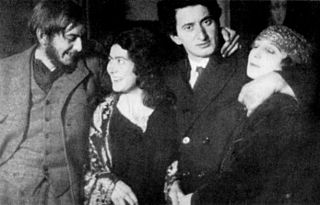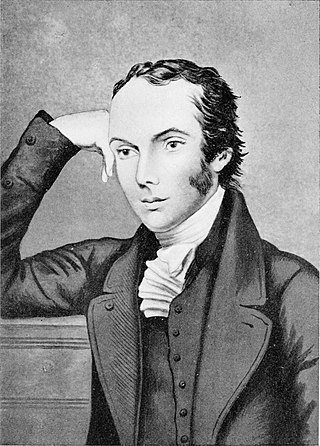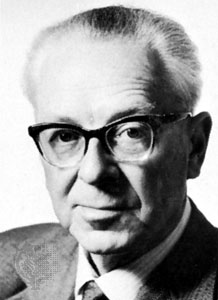Related Research Articles

The Cape Colony, also known as the Cape of Good Hope, was a British colony in present-day South Africa named after the Cape of Good Hope. It existed from 1795 to 1802, and again from 1806 to 1910, when it united with three other colonies to form the Union of South Africa, then became the Cape Province, which existed even after 1961, when South Africa had become a republic, albeit, temporarily outside the Commonwealth of Nations (1961–94).

Johan Anthoniszoon "Jan" van Riebeeck was a Dutch navigator, ambassador and colonial administrator of the Dutch East India Company.

Traditional healers of Southern Africa are practitioners of traditional African medicine in Southern Africa. They fulfil different social and political roles in the community like divination, healing physical, emotional, and spiritual illnesses, directing birth or death rituals, finding lost cattle, protecting warriors, counteracting witchcraft and narrating the history, cosmology, and concepts of their tradition.

Ignatius Royston Dunnachie Campbell, better known as Roy Campbell, was a South African poet, literary critic, literary translator, war poet and satirist. Most of his adult life was spent in Europe.

The German colonial empire constituted the overseas colonies, dependencies, and territories of the German Empire. Unified in 1871, the chancellor of this time period was Otto von Bismarck. Short-lived attempts at colonization by individual German states had occurred in preceding centuries, but Bismarck resisted pressure to construct a colonial empire until the Scramble for Africa in 1884. Claiming much of the remaining uncolonized areas of Africa, Germany built the third-largest colonial empire at the time, after the British and French. The German colonial empire encompassed parts of several African countries, including parts of present-day Burundi, Rwanda, Tanzania, Namibia, Cameroon, Gabon, Congo, Central African Republic, Chad, Nigeria, Togo, Ghana, as well as northeastern New Guinea, Samoa and numerous Micronesian islands.

Thomas Pringle was a Scottish writer, poet and abolitionist. Known as the father of South African poetry, he was the first successful English language poet and author to describe South Africa's scenery, native peoples, and living conditions.

Sir Laurens Jan van der Post, was a South African Afrikaner writer, farmer, soldier, educator, journalist, humanitarian, philosopher, explorer and conservationist. He was noted for his interest in Jungianism and the Kalahari Bushmen, his experiences during World War II, as well as his relationships with notable figures such as King Charles III and British Prime Minister Margaret Thatcher. After his death, there was controversy over claims that he had exaggerated many aspects of his life, as well as his sexual abuse and impregnation of a 14-year-old girl.

William Charles Franklyn Plomer was a South African and British novelist, poet and literary editor. He also wrote a series of librettos for Benjamin Britten. He wrote some of his poetry under the pseudonym Robert Pagan.
Lilian Helen Bowes Lyon was a British poet.
Anarchism in South Africa dates to the 1880s, and played a major role in the labour and socialist movements from the turn of the twentieth century through to the 1920s. The early South African anarchist movement was strongly syndicalist. The ascendance of Marxism–Leninism following the Russian Revolution, along with state repression, resulted in most of the movement going over to the Comintern line, with the remainder consigned to irrelevance. There were slight traces of anarchist or revolutionary syndicalist influence in some of the independent left-wing groups which resisted the apartheid government from the 1970s onward, but anarchism and revolutionary syndicalism as a distinct movement only began re-emerging in South Africa in the early 1990s. It remains a minority current in South African politics.
The following lists events that happened during 1906 in South Africa.

The Cape Times is an English-language morning newspaper owned by Independent News & Media SA and published in Cape Town, South Africa.

White South Africans are South Africans of European descent. In linguistic, cultural, and historical terms, they are generally divided into the Afrikaans-speaking descendants of the Dutch East India Company's original colonists, known as Afrikaners, and the Anglophone descendants of predominantly British colonists of South Africa. In 2016, 57.9% were native Afrikaans speakers, 40.2% were native English speakers, and 1.9% spoke another language as their mother tongue, such as Portuguese, Greek, or German. White South Africans are by far the largest population of White Africans. White was a legally defined racial classification during apartheid.
The Sestigers (Sixtiers), also known as the Beweging van Sestig, were a dissident literary movement of Afrikaans-language poets and writers in South Africa under apartheid. The movement was started in the beachside Cape Town suburb of Clifton during the early 1960s by André Brink and Breyten Breytenbach, under the mentorship of Uys Krige and Jack Cope, and in continuation of a tradition in South African literature pioneered in the 1920s by Roy Campbell, William Plomer, and Laurens van der Post.
Afrikaners are a Southern African ethnic group descended from predominantly Dutch settlers first arriving at the Cape of Good Hope in 1652. Until 1994, they dominated South Africa's politics as well as the country's commercial agricultural sector.

Wee Bin born in China in about 1823, was a Chinese migrant of the mid-nineteenth century who founded what was, at the time, Singapore's largest Chinese shipping firm.
The Slachter's Nek Rebellion was an uprising by Boers in 1815 on the eastern border of the Cape Colony.

The Kamerun campaign took place in the German colony of Kamerun in the African theatre of the First World War when the British, French and Belgians invaded the German colony from August 1914 to March 1916. Most of the campaign took place in Kamerun but skirmishes also broke out in British Nigeria. By the Spring of 1916, following Allied victories, the majority of German troops and the civil administration fled to the neighbouring neutral colony of Spanish Guinea. The campaign ended in a defeat for Germany and the partition of its former colony between France and Britain.

Dorothy Moss Kay was an Irish-born South African artist.
References
- 1 2 Eugene Benson; L.W. Conolly (30 November 2004). Encyclopedia of Post-Colonial Literatures in English. Routledge. p. 904. ISBN 978-1-134-46848-5 . Retrieved 19 February 2017.
- Peter F. Alexander. William Plomer: A Biography (Oxford Lives, 1991)
- Andrew Edward Van der Vlies, South African textual cultures: white, black, read all over, Manchester University Press, 2007, ISBN 0-7190-7614-5
- Joseph Pearce, Unafraid of Virginia Woolf (ISI Books, Wilmington, Delaware: 2004), pp. 81–85